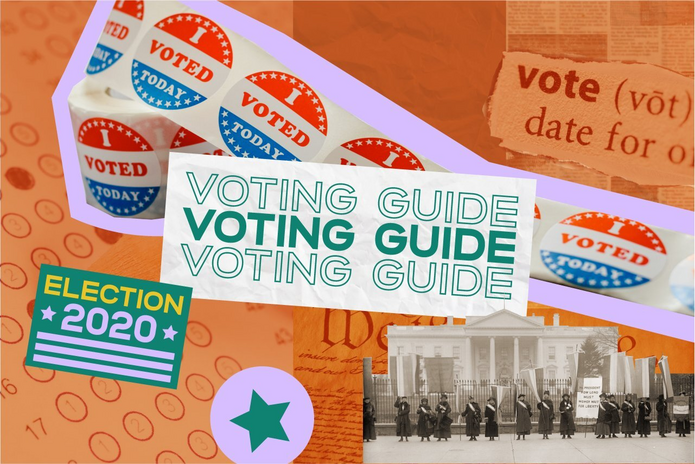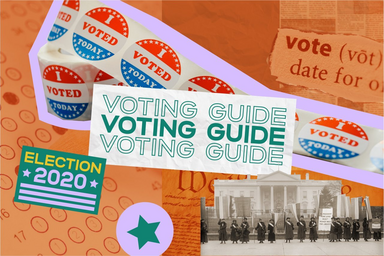From raising the minimum wage to reshaping the amendment process, the upcoming vote on constitutional amendments could revamp Florida policy.
The 2020 ballot presents less than half the number of amendments seen in the 2018 ballot, but these half-dozen amendments are teeming with potential change. Here is a rundown of what each amendment could mean for the future of the state.
Amendment 1: Citizenship Requirement to Vote in Florida Elections
This amendment proposes the altering of just two words in the Florida constitution. Its passage would adjust the current phrasing of “Every Citizen” of the United States may vote into “Only a citizen.” This amendment does not change much; it is already Florida law that voters must possess citizenship.
The change may hint at a fear that non-citizens are voting in the state of Florida. Whether you vote yes or no, all that is subject to change are two words within the constitution.
Amendment 2: Raising Minimum Wage in Florida
The Second Amendment, originating from progressive activists, aims to raise the minimum wage in Florida to $15 per hour by 2026. Florida’s current minimum wage is $8.65 per hour, which is greater than the federal minimum wage of $7.25.
This amendment could minimize the growing wealth gap that exists between an hourly wage earner and a corporate CEO. However, critics argue that the increase in wages would ultimately raise the costs of running a business, resulting in higher consumer prices.
Fight for 15 Florida, a labor union, advocates for the passage of this amendment across social media. Another major proponent of this amendment is Florida for a Fair Wage. Alternatively, groups such as the Florida Chamber of Commerce oppose the mandate as it would place a financial burden on businesses.
Amendment 3: All Voters Vote in Primary Elections for State Legislature, Governor and Cabinet
As of now, Florida’s primaries are closed. A closed primary is defined as a direct primary in which only those registered to a party may vote in the respective primary.
The Third Amendment would ensure all registered voters, no matter their party affiliation, may vote in a primary for governor, state legislature and/or cabinet-level races. In this scenario, the two candidates with the highest number of votes, regardless of party, would proceed to the general election.
This is referred to as a “jungle primary.” Potentially, two Democrats or two Republicans could advance to the general election.
This amendment would allow Florida’s unaffiliated voters to have a voice. However, It may negatively impact minority representation as white Republican and independent voters could vote in predominantly Black Democratic districts.
Amendment 4: Voter Approval of Constitutional Amendments
60% of voters must approve an amendment for the Florida constitution to change. The Fourth Amendment would require a 60% backing in two separate elections, doubling the original requirement.
The reasoning behind this proposed amendment is so voters can truly understand the impact of any change to the state constitution. However, this initiative could undermine democracy within the state. Amending the state constitution is a colossal task, and requiring that an amendment passes twice may prove difficult.
Amendment 5: Limitation on Homestead Assessments
This amendment would lengthen the period in which a person can transfer “Save Our Homes” benefits to a new homestead property from two years to three years. Currently, Floridians who move from one homestead property to another have two years from Jan. 1 of the sale of the first home to claim the tax benefit.
The “Save Our Homes” benefit is the difference between the assessed and taxable value of a home. The law allows homeowners who claim a homestead exemption to have the home’s taxable value increase by a maximum of three percent per year.
When a homeowner sells a homesteaded property, they only pay taxes on the value of the home minus the value of any claimed exemptions.
Amendment 6: Homestead Property Tax Discount for Spouses of Deceased Veterans
This amendment would allow a homestead property tax discount to transfer to the spouse of a deceased veteran. Such a discount would be available until the spouse remarries, disposes of or sells the property. If the spouse were to sell the house and purchase a new one, the new home may receive a tax discount not exceeding the amount from the recent ad valorem tax roll.
Currently, the ad valorem tax roll does not extend to a veteran’s spouse after their death; it simply expires. If passed, the amendment will take effect in Jan. 2021.
The ballot for the Nov. 3 election presents more opportunities than merely electing officials. An informed vote is vital to the progress of the national, state and local governments.


